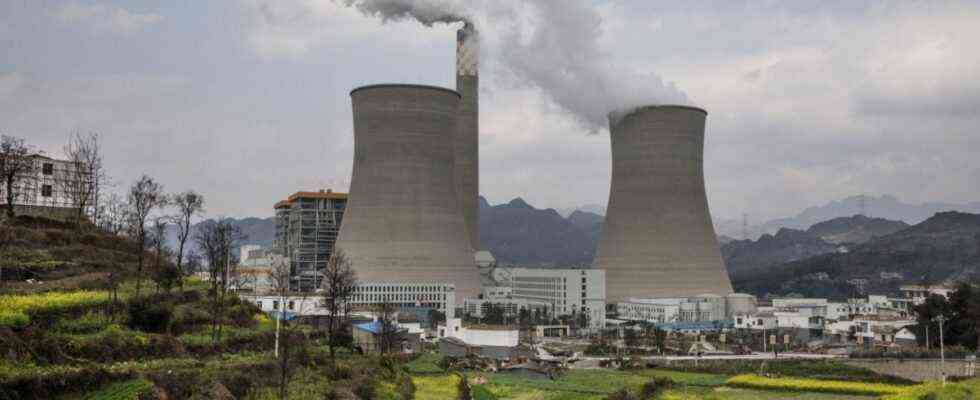China no longer wants to build new coal-fired power plants abroad. The Chinese state and party leader Xi Jinping said in his recorded speech at the UN general debate on Tuesday evening in New York. “China will step up its support to other developing countries in developing green and low-carbon energy and not build new coal-fired power plants abroad,” Xi promised. Chinese state corporations have built hundreds of coal-fired power plants in other countries in recent years and in the People’s Republic itself – despite criticism from environmentalists – new power plants are still being planned and built. Half of the world’s coal is burned in China.
Xi left a number of details open: When does the regulation come into force? Does it also apply to power plants that have already been approved but not yet built? Most of the coal-fired power plants completed by Chinese corporations, for example in Indonesia, Vietnam or Bangladesh, were built as part of the new Silk Road, the world’s largest infrastructure program. In 2013, Xi first presented the project under the name “a belt, a road”. It is a network of investments that should encompass almost 70 percent of the world’s population. Projects worth more than a trillion dollars. The program has been anchored in the Communist Party constitution since 2017. According to Chinese propaganda, the whole world benefits from it: New roads and rail lines, new ports and subways, but above all more trade – everywhere. In fact, it is mainly Chinese companies that receive the orders and most of them are not particularly ecological: A study by the Institute of International Finance in Washington in 2020 came to the conclusion that 85 percent of the Silk Road projects are associated with high greenhouse gas emissions. The Chinese ban on building coal-fired power plants could now reduce this proportion considerably.
In his video message, Xi emphasized the importance of improving global environmental policy, actively responding to climate change and creating a community for people and nature. He also said that the transition to a green and low carbon economy needs to be accelerated and green recovery and development achieved. “China will strive to peak carbon emissions by 2030 and become carbon neutral by 2060. This will require a tremendous effort and we will do everything we can to achieve these goals,” Xi said. He announced this goal for the first time in autumn 2020, also by video message to the United Nations.
“China deserves praise for its commitment to stop building coal-fired power plants abroad – the first developing country to make such a commitment and the last of the major overseas public coal donors to do so,” said Kevin P. Gallagher, Professor of Global Development Policy at Boston University. US Climate Commissioner John Kerry also welcomed the announcement and said in a statement that he was “absolutely delighted to hear that President Xi has made this important decision.”

